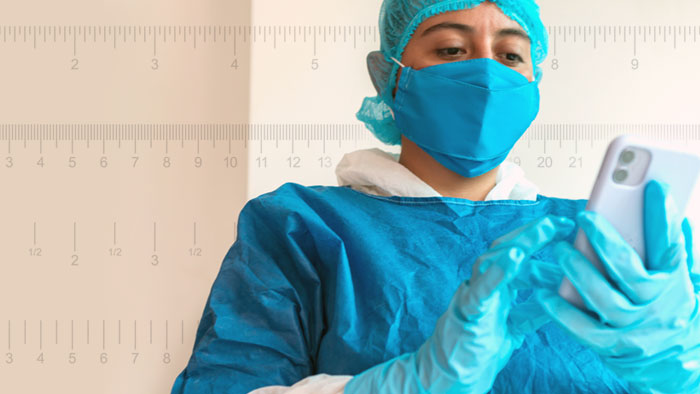Proof-of-concept phase is exploring how this new tool could address a community need and increase organ utilization
Today, United Network for Organ Sharing (UNOS) announced that UNOS Labs, the organization’s experimental incubator that tests innovative products, tools and methods to improve the donation and transplant system, is developing an app that may help increase organ use by providing surgical teams with higher quality images of donor organs.
UNOS operates the Organ Procurement and Transplantation Network (OPTN) under contract with the federal government.
Currently, organ photos are not consistent in their positioning, lighting, quality or use of scale. These “procurement photos” are used by surgical teams to assist in determining if they should accept an organ on behalf of their patient. UNOS has heard from surgeons across the country that they need better, more standardized photos, with the ability to measure specific portions of a photographed organ.
Based on this feedback, UNOS staff started working on a modern solution to address this pressing community need. The plan employs computer vision technology, 3D modeling and augmented reality to eventually introduce a straightforward, smartphone-based solution to a complex, system-wide problem.
“What we’ve found in our research is that a photo of an organ is important for determining clinical viability of the organ and its anatomy,” said Senior Data Scientist Morgan Stuart. “We think that recent advances in augmented reality technology can make these photos even more valuable. While our research continues, we think combining mobile augmented reality with the latest computer vision techniques will help standardize, expedite, and enhance organ allocation.”
The tool is currently in the proof-of-concept phase. If early tests prove effective, the long-term goal is to provide organ procurement organizations (OPOs) and surgical teams with a mobile app that can capture high-quality, standardized photos, identify organ type, collect anatomical data, calculate size and annotate images. The tool would also include measurement capabilities, allowing surgeons to measure specific sections of the photographed organ.
Overall size and unique measures can help determine if an organ is the best fit for a given patient, making this tool a potential game-changer in how organ offers are accepted and potentially reducing the number of organs recovered for transplant that are not ultimately used.
“While still in the early stages, the research, development and hard work that have gone into this tool are a direct result of feedback we received from members of the nation’s organ donation and transplant community,” said UNOS CEO Maureen McBride, Ph.D. “We heard that surgeons had a specific need to improve the way they served their patients. UNOS staff were ready to pursue an innovative solution in response, while simultaneously tackling the very real issue of organ non-use. I look forward to seeing the results as this exciting project continues.”
Research has indicated that there is a correlation between access to photographs and the acceptance of kidneys, which continue to be the most transplanted organ. Yet, in 2022, 19% of deceased donor organs recovered for transplant, predominantly kidneys, were not ultimately transplanted.
Specifically, analysis conducted by the OPTN suggests that for kidneys with a high kidney donor profile index (KDPI), surgical teams were more inclined to accept these more medically complex but still safe organs if photos were included, when compared to teams that had no access to photos. Researchers determined that the likeliest reason is when a surgical team is considering a more medically complex kidney, photos can provide additional context and opportunities to visually confirm size and scale, making it easier to ultimately accept the offer.
Funded by a generous donor, the proof-of-concept phase will last up to 12 weeks. If this phase proves successful, UNOS Labs will begin to host focus groups to gather additional community input. Pulling from that data, staff will then begin to develop the mobile app and launch a six-month pilot program.
About UNOS
United Network for Organ Sharing (UNOS) is the mission-driven non-profit serving as the nation’s transplant system under contract with the federal government. We lead the network of transplant hospitals, organ procurement organizations, and thousands of volunteers who are dedicated to honoring the gifts of life entrusted to us and to making lifesaving transplants possible for patients in need. Working together, we leverage data and advances in science and technology to continuously strengthen the system, increase the number of organs recovered and the number of transplants performed, and ensure patients across the nation have equitable access to transplant.
Saving lives together
UNOS Labs’ scientists, biostatisticians and developers collaborate with donation and transplantation experts to make lifesaving improvements to the system through research and experimentation.
If you would like to support lifesaving efforts like these, please visit our give page or contact [email protected].

